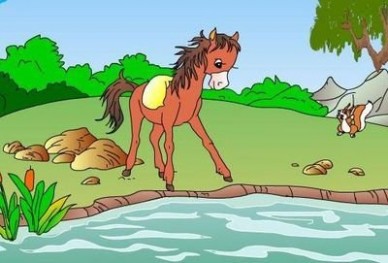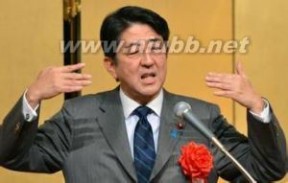一 : 成语故事大全英文版
成语故事既能开阔视野、增长知识,又能懂得许多做人做事的道理,更能锻炼人的语言表达能力,下面这些是小编为大家推荐的几篇成语故事大全英文版。
“www.61k.com。
A farmer in the state of Song once got a piece of stone with jade in it.
宋国人有个农夫得到一块含宝玉的石头后,将它献给了相国子罕。
He presented this stone to Prime Minister Zi Han. But Zi Han refused to accept it. , “It looks like just a stone, but there is jade inside. It actually is a piece of treasure and suitable for honorable men like you, not for us common people.”
子罕拒绝接受这块石头,农夫解释说:“表面上它是块石头,但里面含有宝玉,是个宝物,适合您这样的贵人使用,我们普通百姓用它就不合适了。”
“I know there is jade inside,” Zi Han said,” but I disagree with you. . ”
子罕说:“我知道里面是宝玉。但我的观点和你不同,我认为具有不接受不应得的东西的品德才是真正的宝玉。”
A famous doctor, Bian Que, after seeing Duke Huan of the state of Cai, told him that his illness had intruded into his skin and he needed to be treated immediately.
名医扁鹊见到蔡桓公后,告诉桓公他的疾病已入侵皮肤,要赶快治疗。
But the Duke felt he was in good health and thought that Bian Que just wanted to take credit, so he ignored him.
桓公觉得自己的身体很好,认为扁鹊是想邀功,就没有理睬。
Ten days later, Bian Que advised the Duke to take treatments when the illness was only ion the flesh, but the Duke still had not said anything.
十天后,扁鹊劝说桓公趁病入侵肌体,英语小故事尽快诊治,桓公还是不吱声。
Another then days had passed before Bian Que told the Duke that his illness had moved to his intestines and stomach. , Another ten days later, when Bian Que saw the Duke, he said nothing and turned around and left.
又过了十天,扁鹊说桓公病人肠胃,桓公还是不信。再过十天,扁鹊见到桓公,一句话没说,转身便离开了。
Duke Huan sent people to ask for the reason, and Bian Que answered that when the illness was in skin, flesh, intestines and stomach, it could be cured through sticking medicines, fumigating and washing, acupuncture, or taking medicines that can eliminate internal heat, etc. Now the illness was in the bones, it could not be cured any more.
桓公派人去问他,扁鹊说,病在皮肤、肌体、肠胃可以通过敷药、熏药、针灸、服用清火药剂等手段治疗,现已病已骨髓,治不好了。
Five days later, Duke Huan ached all over the body. But at this time, . Before long, the Duke died of his incurable illness.
五天以后,桓公浑身疼痛,而扁鹊已逃往秦国。不久,桓公因伤病发作,治疗无效而死去。
Zeng Zi saw Zi Xia and asked him, “Why have you gained weight?”
曾子见到子夏,问道:“你怎么胖了?”
Zi Xia said, “I had a victory, that is why I have gained weight.”
子夏说:“我获得了胜利,所以胖了。”
“What victory do you refer to?” Zi Xia said, “When I immerged myself in reading books, . When I went out, I admired the life of nabodism. There was a fight between the two in my mind, and they came out even. So I got emaciated. Now that the principles of the emperors and sages of the past have won victory, my mind has become more and more peaceful. So I have gained weight.”
曾子问:“你是指什么?”子夏说:“我埋头读书时,敬仰先生至圣的道理,出门在外则羡慕富贵生活的快乐,英语短文两者在心中交战,难分胜负,所以瘦了下来。现在,先王至圣的道理获胜了,心中也日益安宁,所以人也胖了起来。”

二 : 欺世盗名:欺世盗名-成语故事,欺世盗名-英文解释
百度搜索:61阅读,发现并分享更多精彩生活。
欺世盗名,欺骗世人,窃取名誉。示例,不知平日所讲何学,居然~。(清·阮葵生《茶余客话》卷十)。用法,作谓语、宾语、定语;指欺骗世人。近义词,盗名欺世、欺世惑众、沽名钓誉。反义词,名副其实。这个成语出自《荀子·不苟》,上面有这样一段话:“夫富贵者则类傲之;夫贫贱者则求柔之。是非仁人之情也,是奸人将以盗名于暗世者也,险莫大焉。”荀况在著作中认为,史鱼和田仲都是用欺骗手段“盗名于暗世者也”(在动乱之世道窃取虚名的人)。他们是最大的危险。成语“欺世盗名”即由此而来。指欺骗世人,窃取名誉。
欺世盗名_欺世盗名 -成语故事

欺世盗名_欺世盗名 -英文解释
deceivethepublicsoastobuildupa(false)reputation;angleforundeservedfame;deceivepeopleandwinthename[reputation]ofanuprightgentleman;deceivethepublictowincreditforoneself.
欺世盗名_欺世盗名 -例句
他是个欺世盗名的政客。
Heisanundeservinglyhonoredpolitician.
以别人名义说话的人总是个欺世盗名者。
Anyonewhospeaksinthenameofothersisalwaysanimposter.
你又将怎么样来颠倒是非,欺世盗名?
Orunderwhatmisrepresentation,canyouhereimposeuponothers?
三 : 成语故事中英文
成语故事中英文 破镜重圆
In the Northern and Southern Dynasties when the State of Chen (A.D. 557-589) was facing its demise(死亡,终止) , Xu Deyan, husband of the princess, broke a bronze mirror into halves. Each of them kept a half as tokens(代币,符号) in case they were separated. Soon afterwards, they did lose touch with each other, but the two halves of the mirror enabled them to be reunited.
This idiom is used to refer to the reunion of a couple after they lose touch or break up.
“镜子”是中国传统文学中是一个广泛使用的文学意象。文学家把满月比作镜子,也用镜子来形容一个人的品德无暇疵,还有的时候说某某人的心里明镜似的,形容他对事情的明晰洞察。成语“破镜重圆”是借镜子比喻离散夫妻重新团聚的。
(www.61k.com。故事发生在公元九世纪,当时中国北方是强盛的隋政权,南方则并存着好几个小国家,国都在建康(今南京)的陈国就是其中的一个。隋政权对南方的小国家虎视眈眈,随时准备统一整个中国。
徐德言是陈国的皇帝陈叔宝的侍从官,他娶了皇帝的妹妹乐昌公主为妻,两人非常恩爱。但当时陈国朝政腐败,徐德言预料到,总有一天国家会遭受灭亡之祸,因此非常忧虑。
一天,他愁容满面地对妻子说:“天下大乱的事可能不久就会发生,到时我要保护皇帝,我们夫妻将被迫拆散。但只要我们活着,总会有再次见面的机会。我们应该先留下一件东西,作为将来重见的凭证。”
乐昌公主同意丈夫的看法和建议。于是徐德言取来一面圆形的铜镜,把它一破为二,一半自己留下,一半交给妻子,告诉她好好保存,并对她说:“如果离散后,就在每年正月十五日那天,托人将这半面镜子送到市场上去叫卖。只要我还活着,我一定前去探听,以我的半面镜子为凭,与你团聚。”
不久,已经统一中国北方的隋文帝杨坚,果然发兵攻打陈国的都城建康,小小的陈国被消灭,陈国国王被杀,徐德言被迫逃亡。隋文帝奖赏攻打陈国有功的人,被俘获的乐昌公主则被赏给了大臣杨素为妾。
流亡的徐德言打听到妻子已到了隋的京都大兴(今陕西西安),便长途跋涉赶到那里,打听妻子的具体下落。每当夜深人静,他总是取出半面镜子,怀念与妻子在一起的美好时光。而他的妻子乐昌公主,虽然在杨素的官府中过着非常奢侈的生活,但内心一直惦记着丈夫,也经常抚摸半面镜子,回忆往事。
正月十五日终于来到了。徐德言赶到热闹的市场,看见一个老人以高价出卖半面铜镜,自然没有人愿意出高价买半面镜子,所以老人就来回在市场上走动。徐德言假装要买老人的镜子,细细察看,果然是妻子的那半块。原来他是杨府的仆人,受乐昌公主委托来卖镜寻夫的。于是徐德言写了一首诗,交给仆人带回。诗写道:“镜与人俱去,镜归人未归。无复嫦娥影,空留明月辉。”意思是镜子与人都去了,但如今镜子归来而人却没有归来。正好比月中没有嫦娥的身影,只空留明月的光辉。
乐昌公主见到丈夫保存的半面铜镜和诗后,终日哭泣,茶饭不思。杨素知道实情后,受到感动,把徐德言叫来,让他把乐昌公主带回自己的故乡去,还赐给了他许多东西。夫妻终于重新团聚。
后世文学中用“破镜重圆”指离散夫妻的团聚,用“破镜难圆”表示因为客观的原因夫妻被迫分离。

成语故事中英文 草木皆兵
During the Eastern Jin Dynasty, Fu Jian, king of the State of Qin, controlled northern China. In the year 383, Fu Jian led 900,000 infantry(步兵) and cavalry(骑兵) troops to assault the State of Jin which was south of the Yangtze River. Xie Shi and Xie Xuan, senior generals of the Jin army, led 80,000 troops to offer resistance. Knowing that the Jin army was short of men, Fu Jian wanted to seize this opportunity of being much more numerous in armed forces to stage a quick attack.
Unexpectedly, the van(先锋) of Fu Jian's army of 250,000 troops was defeated in the Shouchun area by an ingenious(机灵的,精致的) military move of the Jin army and suffered heavy losses. The senior general of the van of Fu Jian's army was killed, and there were heavy casualties of more than 10,000 soldiers. Fu Jian's army was dispirited and its morale was shaken. Many soldiers were in such a great panic that they waited for opportunities to run away. Standing on the city wall of the Shouchun City, Fu Jian and his brother Fu Rong saw that the ranks of the Jin army were in good order and that the morale of the Jin army was high. Turning to his brother, Fu Jian said, "What a powerful enemy this is! Why did people say that the Jin army was short of men?" He deeply regretted that he had taken the enemy too lightly.
Overshadowed by the disastrous defeat, Fu Jian ordered his troops to be deployed in battle formation on the north side of the Feishui River, in an attempt to regain the initiative by relying on the superior geographical conditions. Then Xie Shi and Xie Xuan, the senior generals of the Jin army, suggested that Fu Jian's army retreat a little bit, leaving some space, so that the Jin army could cross the river to conduct ooperations. Fu Jian thought that his chance had come, believing that the senior generals of the Jin army did not have the elementary knowledge of warfare. It was his plan to stage a sudden attack while the troops of the Jin army was busy crossing the river, and he was sure that his plan would word. So he willingly accepted the suggestion of the Jin army.
Unexpectedly, the moment the order to retreat was given, Fu Jian's troops were utterly routed and could by no means(决不) be controlled. Taking advantage of this favorable situation, the Jin army crossed the river, pursuing and attacking the enemy. The trooops of Fu Jian's army threw away everything in headlong flight, and the field was littered with the corpses of the soldiers of Fu Jian's army. Fu Rong was killed in the tangled(紊乱的) fighting, and Fu Jian was hit by an arrow and ran away. The Jin army won a brilliant victory by defeating a big army with its limited armed forces.
This story comes from "The Life of Fu Jian" in the volume "Records" of The History of the Jin Dynasty. The set phrase "every bush and tree looks like an enemy" is subsequently used to refer to a state of extreme nervousness.
东晋时代,秦王苻坚控制了北部中国。公元383年,苻坚率领步兵、骑兵9O万,攻打江南的晋朝。晋军大将谢石、谢玄领兵8万前去抵抗。苻坚得知晋军兵力不足,就想以多胜少,抓住机会,迅速出击。
谁料,苻坚的先锋部队25万在寿春—带被晋军出奇击败,损失惨重,大将被杀,士兵死伤万余。秦军的锐气大挫,军心动摇,士兵惊恐万状,纷纷逃跑。此时,苻坚在寿春城上望见晋军队伍严整,士气高昂,再北望八公山,只见山上—草—木都像晋军的士兵—样。苻坚回过头对弟弟说:“这是多么强大的敌人啊!怎么能说晋军兵力不足呢?”他后悔自己过于轻敌了。
出师不利给苻坚心头蒙上了不祥的阴影,他令部队靠淝水北岸布阵,企图凭借地理优势扭转战局。这时晋军将领谢玄提出要求,要秦军稍往后退,让出—点地方,以便渡河作战。苻坚暗笑晋军将领不懂作战常识,想利用晋军忙于渡河难于作战之机,给它来个突然袭击,于是欣然接受了晋军的请求。
谁知,后退的军令—下,秦军如潮水—般溃不成军,而晋军则趁势渡河追击,把秦军杀得丢盔弃甲,尸横遍地。苻坚中箭而逃。
草木皆兵的故事出自“晋书苻坚载记”。成语“草木皆兵”,形容神经过敏、疑神疑鬼的惊恐心理。
成语故事中英文 滥竽充数
During the Warring States Period (475-221BC), the King of the State of Qi was very fond of listening to yu ensembles. He often got together 300 yu players to form a grand music. The king treated his musician very well. A man named Nanguo heard about that and he managed to become a member of the band, even though he wan not good at playing the instrument at all. Whenever the band played for the king, Nanguo just stood in the line and pretended to play. Nobody realized he was making no sound at all. As a result, he enjoyed his treatment just as the other musician did. When the king died, his son became the new ruler who also liked the music played on the yu. However, he preferred solos so that he ordered the musicians to play the yu one by one. Therefore, Nanguo had to run out of the palace.
战国时,齐宣王喜欢听竽,通常是三百人的大合奏。因为他给予乐师非常优厚的待遇,所以一个叫南郭的人尽管并不擅长吹竽,也设法混进乐队。当乐队演奏时,他就站在队伍里假装也在吹。没有人注意到其实他连一点声音也没吹出来,所以南郭也享受到和其他乐师一样的待遇。宣王死后,他的儿子继承了王位。他也喜欢听竽,可是他喜欢听独奏,让乐师一个个吹给他听,于是南郭不得不逃跑了。
the idiom "Be there just to make up the number" is used to mock someone who passes for a specialist. You can also hear people saying it about themselves to show their modesty.
"滥竽充数"这个成语用来嘲笑那些没有真正才干,混在行家里的人。 人们有时也用"滥竽充数"来表示自谦。
本文标题:英文成语故事-成语故事大全英文版61阅读| 精彩专题| 最新文章| 热门文章| 苏ICP备13036349号-1